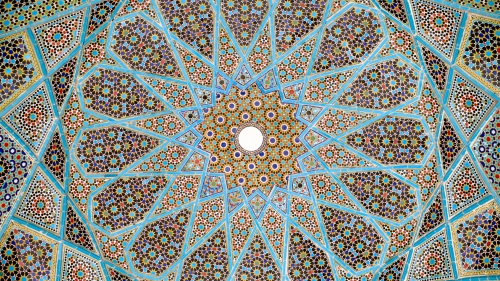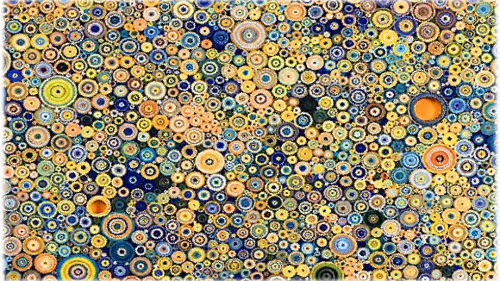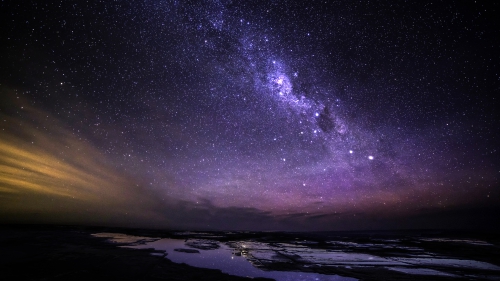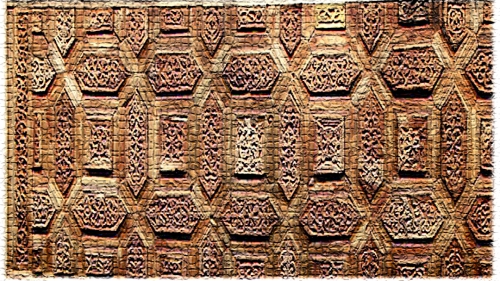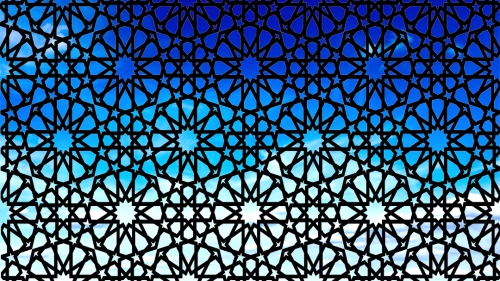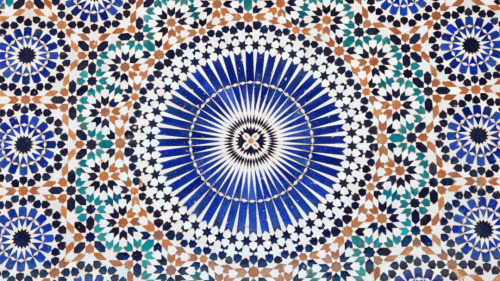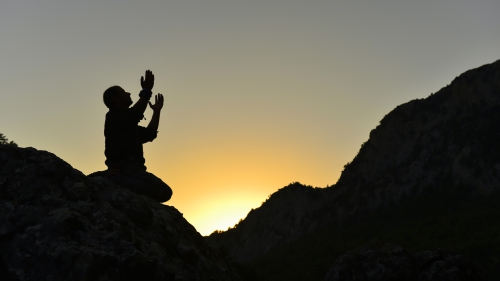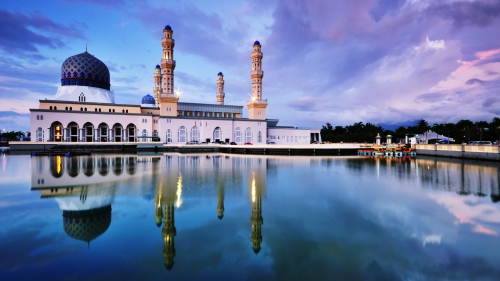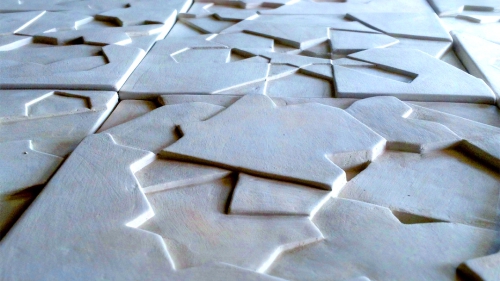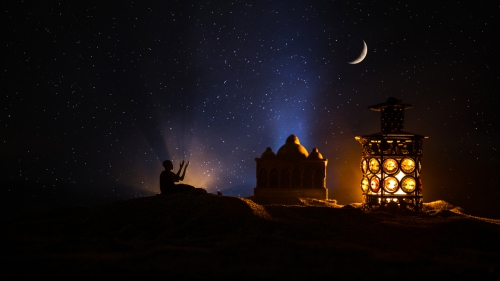Tafsir: Surah Al Qadr - The Night of Power
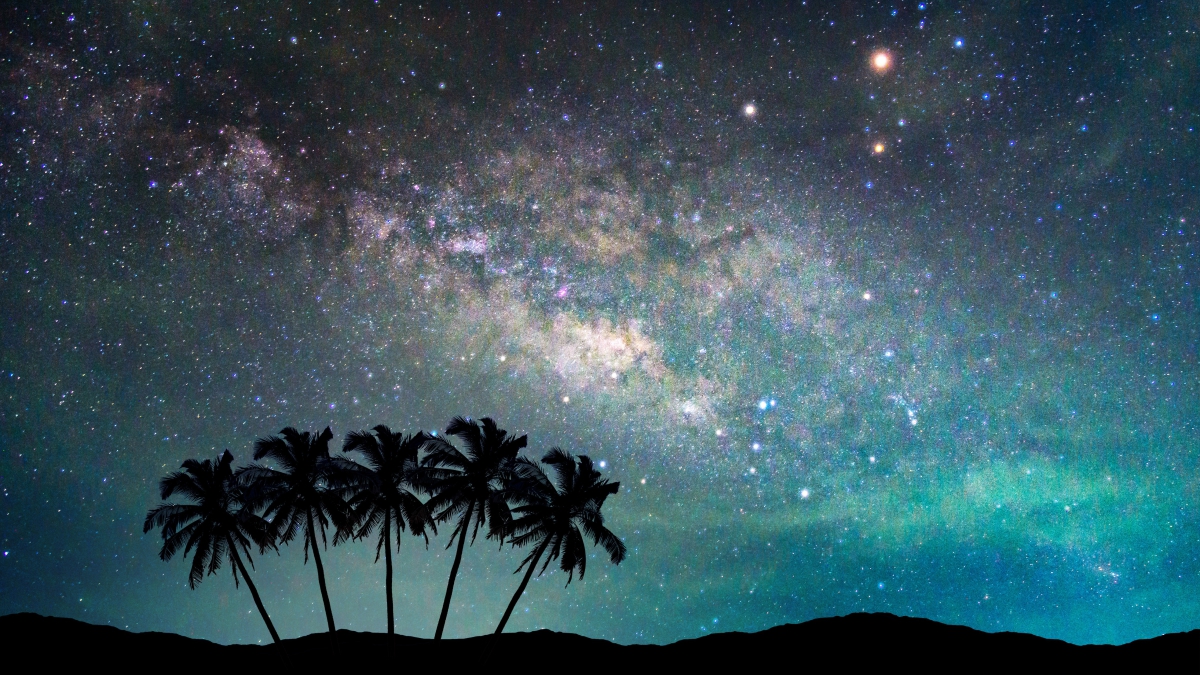
In the name of Allah, the Most Gracious Most Merciful.
1. Verily, We have sent it down in the Night of Al-Qadr
2. And What will make you know what the Night of Al-Qadr is?
3. The Night of Al-Qadr is better than a thousand months.
4. Therein descend the angels and the Ruh by their Lord’s permission with every matter.
5. There is peace until the appearance of dawn.
Quran 97 Al-Qadr
The Virtues of the Night of Al-Qadr (the Decree)
Allah informs that He sent the Quran down during the Night of Al-Qadr, and it is a blessed night about which Allah says,
We sent it down on a blessed night [44:3]
This is the Night of Al-Qadr and it occurs during the month of Ramadan. This is as Allah says,
The month of Ramadan in which was revealed the Quran [2:185]
Ibn Abbas and others have said, “Allah sent the Quran down all at one time from the Preserved Tablet (Al-Lawh Al-Mahfuz) to the House of Might (Baytul-Izzah), which is in the heaven of this world. Then it came down in parts to the Messenger of Allah (Sallallaahu ‘alaihi wa Sallam) based upon the incidents that occurred over a period of twenty-three years.”
Then Allah magnified the status of the Night of Al-Qadr, which He chose for the revelation of the Mighty Quran, by His saying,
And What will make you know what the Night of Al-Qadr is?
The Night of Al-Qadr is better than a thousand months.
[At-Tabari 24:531, 532, and Al-Qurtubi 20:130]
Imam Ahmad recorded that Abu Hurayrah said, “When Ramadan would come, the Messenger of Allah (Sallallaahu ‘alaihi wa Sallam) would say,
“Verily the month of Ramadan has come to you all. It is a blessed month, which Allah has obligated you all to fast. During it the gates of Paradise are opened, the gates of Hell are closed and the devils are shackled. In it there is a night that is better than one thousand months. Whoever is deprived of its good, then he has truly been deprived”
[Ahmad 2:230] There is a witness for this narration from the Hadith of Anas bin Malik in the book of the Sunan.] An-Nasai recorded this same Hadith. [An-Nasai 4:129]
Aside from the fact that worship during the Night of Al-Qadr is equivalent to worship performed for a period of one thousand months, it is also confirmed in the Two Sahihs from Abu Hurayrah that the Messenger of Allah (Sallallaahu ‘alaihi wa Sallam) said,
“Whoever stands (in prayer) during the Night of Al-Qadr with faith and expecting a reward (from Allah), he will be forgiven for his previous sins.” [Fath Al-Bari 4:294, and Muslim 1:253]
The Descent of the Angels and the Decree for Every Good during the Night of Al-Qadr
Allah says,
Therein descend the angels and the Ruh by their Lord’s permission with every matter.
Meaning, the angels descend in abundance during the Night of Al-Qadr due to its abundant blessings. The angels descend with the descending of blessings and mercy, just as they descend when the Quran is recited, they surround the circles of Dhikr (remembrance of Allah) and they lower their wings with true respect for the student of knowledge.
In reference to Ar-Ruh, it is said that here it means the angel Jibril. Therefore, the wording of the Ayah is a method of adding the name of the distinct object (in this case Jibril) separate from the general group (in this case the angels).
Concerning Allah’s statement, "with every matter."
Mujahid said, “Peace concerning every matter.” Sa’id bin Mansur said Isa bin Yunus told us that Al’mash narrated to them that Mujahid said concerning Allah’s statement, "There is peace."
“It is security in which Shaytan cannot do any evil or any harm.” Qatadah and others have said, “The matters are determined during it, and the times of death and provisions are measured out (i.e., decided) during it.” Allah says,
Therein is decreed every matter of decree [44:4]
Then Allah says, "There is peace until the appearance of dawn."
Sa’id bin Mansur said, “Hushaym narrated to us on the sincerity of Abu Ishaq, who narrated that Ash-Sha’bi said concerning Allah’s statement,
With every matter, there is peace until the appearance of dawn.
“The angels giving the greetings of peace during the Night of Al-Qadr to the people in the Masjids until the coming of Fajr (dawn).”
Qatadah and Ibn Zayd both said concerning Alla’s statement, "There is Peace"
“This means all of it is good and there is no evil in it until the coming of Fajr (dawn).”
Specifying the Night of Decree and its Signs
This is supported by what Imam Ahmad recorded from Ubadah bin As-Samit that the Messenger of Allah (Sallallaahu ‘alaihi wa Sallam) said,
“The Night of Al-Qadr occurs during the last ten (nights). Whoever stands for them (in prayer) seeking their reward, then indeed Allah will forgive his previous sins and his latter sins. It is an odd night: the ninth or the seventh, or the fifth, or the third or the last night (of Ramadan).”
The Messenger of Allah (Sallallaahu ‘alaihi wa Sallam) also said,
“Verily, the sign of the Night of Al-Qadr is that it is pure and glowing as if there were a bright, tranquil, calm moon during it. It is not cold, nor is it hot, and no shooting star is permitted until morning. Its sign is that the sun appears on the morning following it smooth having no rays on it, just like the moon on a full moon night. Shaytan is not allowed to come out with it (the sun) on that day.” [Ahmad 5:324. It is a Mursal narration.]
This chain of narration is good. In its text, there are some oddities and in some of its wordings, there are things that are objectionable.
Abu Dawud mentioned a section in his Sunan that he titled, “Chapter: Clarification that the Night of Al-Qadr occurs during every Ramadan.” Then he recorded that Abdullah bin Umar said, “The Messenger of Allah (Sallallaahu ‘alaihi wa Sallam) was asked about the Night of Al-Qadr while I was listening and he said,
“It occurs during every Ramadan.” [Abu Dawud 2:111. This narration is considered Mawquf.]
The men of this chain of narration are all reliable, but Abu Dawud said that Shu’bah and Sufyan both narrated from Ishaq and they both considered it to be a statement of the Companion (Ibn Umar, and thus not the statement of the Prophet (Sallallaahu ‘alaihi wa Sallam) ).
It has been reported that Abu Sa’id Al-Khudri said, “The Messenger of Allah (Sallallaahu ‘alaihi wa Sallam) performed Itikaf during the first ten nights of Ramadan and we performed Itikaf with him. Then Jibril came to him and said, ‘That which you are seeking is in front of you.’ So the Prophet (Sallallaahu ‘alaihi wa Sallam) performed Itikaf during the middle ten days of Ramadan and we also performed Itikaf with him. Then Jibril came to him and said; ‘That which you are seeking is ahead of you.’ so the Prophet (Sallallaahu ‘alaihi wa Sallam) stood up and gave a sermon on the morning of the twentieth of Ramadan and he said,
“Whoever performed Itikaf with me, let him come back (for Itikaf again), for verily I saw the Night of Al-Qadr, and I was caused to forget it, and indeed it is during the last ten (nights). It is during an odd night and I saw myself as if I were prostrating in mud and water.”
The roof of the Masjid was made of dried palm-tree leaves and we did not see anything (i.e. clouds) in the sky. But then a patch of wind-driven clouds came and it rained. So the Prophet (Sallallaahu ‘alaihi wa Sallam) lead us in prayer until we saw the traces of mud and water on the forehead of the Messenger of Allah (Sallallaahu ‘alaihi wa Sallam), which confirmed his dream.”
In one narration it adds that this occurred on the morning of the twenty-first night (meaning the next morning). They both (Al-Bukhari and Muslim) recorded it in the Two Sahihs . [Fath Al Bari 2:329, 318, and Muslim 2:824]
Ash-Shafii said, “This Hadith is the most authentic of what has been reported.” It has also been said that it is on the twenty-third night due to a Hadith narrated from Abdullah bin Unays in Sahih Muslim . [Muslim 2:827]
It has also been reported that it is on the twenty-fifth night due to what Al-Bukhari recorded from Ibn Abbas that the Messenger of Allah said,
“Seek it in the last ten (nights) of Ramadan. In the ninth it still remains in the seventh it still remains, in the fifth it still remains.” [Fath Al-Bari 4:306]
Many have explained this Hadith to refer to the odd nights, and this is the most apparent and most popular explanation. It has also been said that it occurs on the twenty-seventh night because of what Muslim recorded in his Sahih from Ubay bin Ka’b that the Messenger of Allah (Sallallaahu ‘alaihi wa Sallam) mentioned that it was on the twenty-seventh night. [Muslim 2:828]
Imam Ahmad recorded from Zirr that he asked Ubayy bin Ka’b “O Abu Al-Mundhir! Verily, your brother Ibn Masud says whoever stands for prayer (at night) the entire year, will catch the Night of Al-Qadr .” He (Ubayy) said, “May Allah have mercy upon him. Indeed he knows that it is the twenty-seventh night.” Then he swore by Allah. Zirr then said, “How do you know that?” Ubayy replied “by a sign or an indication that he (the Prophet (Sallallaahu ‘alaihi wa Sallam) ) informed us of. It rises that next day having no rays on it – meaning the sun.”
[Ahmad 5:130] Muslim has also recorded it. [Muslim 2:828]
It has been said that it is the night of the twenty-ninth. Imam Ahmad bin Hanbal recorded from ‘Ubadah bin As-Samit that he asked the Messenger of Allah (Sallallaahu ‘alaihi wa Sallam) about the Night of Decree and he replied,
“Seek it in Ramadan in the last ten nights. For verily, it is during the odd nights, the twenty-first, or the twenty-third, or the twenty-fifth, or the twenty-seventh, or the twenty-ninth, or during the last night.”
[Ahmad 5:318 There is a deficiency in its chain of narration, but the meanings are found with others.]
Imam Ahmad also recorded from Abu Hurayrah that the Messenger of Allah (Sallallaahu ‘alaihi wa Sallam) said about the Night of Al-Qadr ,
“Verily, it is during the twenty-seventh or the twenty-ninth night. And verily, the angels who are on the earth during that night are more numerous than the number of pebbles.” [Ahmad 2:519]
Ahmad was alone in recording this Hadith and there is nothing wrong with its chain of narration.
At-Tirmidhi recorded from Abu Qilabah that he said, “the Night of Al-Qadr moves around (i.e., from year to year) throughout the last ten nights.” This view that At-Tirmidhi mentions from Abu Qilabah has also been recorded by Malik, Ath-Thawri, Ahmad bin Hanbal, Ishaq bin Rahuyah, Abu Thar, Al-Muzani, Abu Bakr bin Khuzaymah and others. It has also been related from Ash-Shafi’i and Al-Qadhi reported it from him, and this is most likely. And Allah knows best.
Supplication during the Night of Decree
It is recommended to supplicate often during all times, especially during the month of Ramadan, in the last ten nights, and during the odd nights of it even more so. It is recommended that one say the following supplication a lot:
“O Allah! Verily, you are the Oft-Pardoning, You love to pardon, so pardon me.”
This is due to what Imam Ahmad recorded from Aishah that she said “O Messenger of Allah! If I find the Night of Al-Qadr what should I say?” He (Sallallaahu ‘alaihi wa Sallam) replied,
Say: “O Allah! Verily You are the Oft-Pardoning, You love to pardon, so pardon me.”
[Ahmad 6:182]
At-Tirmidhi, An-Nasai and Ibn Majah have all recorded this Hadith . At-Tirmdhi said, “This Hadith is Hasan Sahih”. [Tahfat Al-Ahwadhi 9:495, An-Nasai in Al-Kurba 6:218, and Ibn Majah 2:1265]
Al-Hakim recorded it in his Mustadrak (with a different chain of narration) and he said that it is authentic according to the criteria of the two Shaykhs (Al-Bukhari and Muslim). [Al-Hakim 1:530] An Nasai also recorded it. [An-Nasai in Al-Kubra 6:219]
This is the end of the Tafsir of Surah Laylat Al-Qadr and all praise and blessing are due to Allah.
Topics: Night Of Power (Laylat Al Qadr), Quran, Ramadan, Tafsir Channel: Ramadan - Day 25, Ramadan - Day 27, Ramadan - Day 28
Views: 66447
Related Suggestions


















